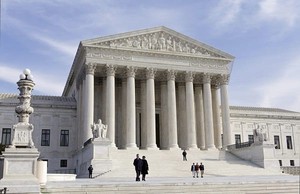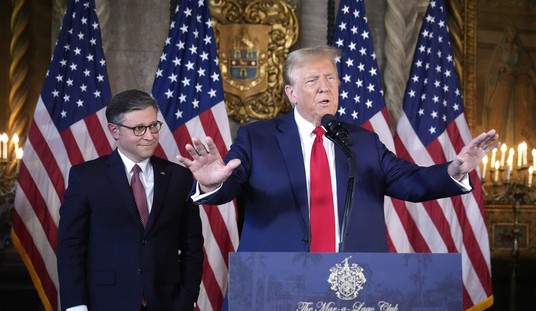=========
=========
Promoted from the diaries by streiff. Promotion does not imply endorsement.
=========
=========

In a 5-4 late night ruling, the United States Supreme Court blocked a Louisiana abortion law from going into effect. The state passed a law requiring doctors at abortion clinics to have admitting privileges at hospitals within 30 miles of an abortion clinic. A somewhat similar law had been struck down in Texas in 2016 by an eight-member Court. Abortion providers prevailed in District Court, but that ruling was overruled by the Fifth Circuit Court of Appeals. They argued that the Louisiana law significantly different from the Texas law in question and the requirement would not place an “undue burden” on a woman’s ability to get an abortion.
Last week, the abortion providers asked the Supreme Court to weigh in through an emergency petition to Justice Alito who handles emergency appeals from the Fifth Circuit. He delayed implementation of the law for one week until the Justices could review the briefs. The providers argued of dire consequences should the law go into effect while the state argued that only one of the unnamed providers had experienced difficulty in gaining admitting privileges, that at most only one provider would cease practice and that no clinic would be forced to close their doors.
The decision last night placed implementation of the law on hold indefinitely by placing a stay on putting the law into effect. They will then entertain a petition to hear the case with briefs most likely due some time in mid-April. After that, the Court will then take up consideration of the case at their private conference. Since the appeal for a stay was granted by a 5-4 per curiam decision (with Roberts joining the liberals), it will most likely be granted. However, it is too late in this term to schedule oral argument so it will most likely be held in the next term starting in October, 2019.
Justice Kavanaugh wrote a dissent noting the alleged effects of the law and whether they were an undue burden is a point of disagreement between the District and Appeals courts. He would have the law go into effect while three doctors continue to resolve the admitting privilege requirements with hospitals. If they fail, he reasoned, they can always come back to the Supreme Court. If, however, they can obtain admitting privileges, then they can continue to perform abortions and there can, therefore, be no undue burden. By taking the current approach- granting a stay- resolution of the case will take much longer.
Voting in favor of the stay and blocking implementation of the law: Chief Justice John Roberts and Justices Stephen Breyer, Ruth Bader Ginsburg, Sonia Sotomayor and Elena Kagan.
Voting against the stay request and allowing the law to go into effect: Justices Brett Kavanaugh, Clarence Thomas, Samuel Alito, and Neil Gorsuch.
NOTE: In my opinion, this is indicative of the propensity of Roberts to avoid major issues head on. He is privately hoping and praying these providers get admitting privileges in the interim thus allowing the case to be declared moot and allowing Roberts to once again avoid a major abortion case. The written opinion of Kavanaugh in dissent seems to be the most commonsense approach. Roberts essentially positioned himself as the swing vote when the Court does take up this case which they will given there are four votes for the state and four for the providers when they submit their writ in mid-April. If the writ is denied, the stay is lifted so you have the four liberals voting to take the case. Either way, you have four Justices voting to take the case one way or the other.













Join the conversation as a VIP Member